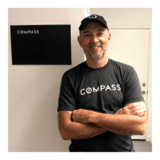Summary
Time is always on our minds in very practical ways—apportioning it for various projects, creating and prioritizing tasks, calendaring, and tracking deadlines and deliverables. Time does, however, have more abstract qualities that require our attention. It drives how we imagine future worlds, set our organizations' visions, track technological trends, manage our enterprises, plan our careers, roadmap our products, and choreograph our people. Each of these activities vary in scale and size, and each has its own cadence. Some focus on years, some on months, some on weeks, some on days. In this talk, Elizabeth Churchill will discuss ways of thinking about time in UX beyond classic, practical notions of "time management". She'll share personal stories from the enterprise and the academy, and invite a conversation about personal journeys of personal life long impact in UX.
Key Insights
-
•
Building social capital and trust inside enterprises increases effective use of formal productivity tools.
-
•
The Yeti collaborative poster allowed cultural co-ownership and broke down language barriers between US and Japanese teams.
-
•
Google Jamboard integrates cloud and G Suite allowing seamless real-time and asynchronous collaboration globally.
-
•
Material Design codifies decades of UX research and principles into a framework used by 90% of Google's product apps.
-
•
UX research on text fields and text legibility directly impacts accessibility standards and influences product designs.
-
•
Ethnographic interviews revealed pain points in designer-to-developer handoff, inspiring new internal collaboration tools.
-
•
Collaboration tools must facilitate trust and meaningful interaction beyond task completion to foster innovation.
-
•
Time boxing aids focus and motivation but must be balanced with reflection on bigger strategic goals.
-
•
Measuring intangible outcomes like rapport, employee happiness, and inter-team trust is critical for justifying internal UX tools.
-
•
Considering time as a material for design encourages long-term thinking about legacy and impact beyond immediate deliverables.
Notable Quotes
"The creation of trust and collaboration environment has a different timescale than communication tools themselves."
"Fuji Xerox would show you how to set up collaborative posters not just as technology but as service for social capital."
"The Jamboard's integration of physical social sharing and distributed digital work artifacts is a new frontier."
"Material Design is both a design philosophy and a framework used by almost all Google apps in some form."
"We tested text fields with Mechanical Turk to find which perform best for most people and fed that into specs."
"Making images and text more legible over complex backgrounds is both a tactical design and accessibility challenge."
"Breaking down silos requires tools that enable cross-team feedback and meaningful collaboration."
"Time boxing reduces anxiety, motivates, but doesn't preclude stepping back to assess bigger goals."
"The CEO wanted rapport, not just productivity, and the collaborative poster created that from scratch."
"When I announced the project shutdown, a flood of employee emails stopped it—it had become part of the fabric."
Or choose a question:
















More Videos

"UX research marketing is the strategy behind and implementation of intentional effective promotion and communication of who UX research is and what UX research does."
Molly FargotsteinMultipurpose Communication & UX Research Marketing
September 12, 2019

"Great design happens because of great designing — design is a verb, not just a noun."
Dave MaloufClosing Keynote: Amplify. Not Optimize.
October 24, 2019

"I wouldn’t want AI to think for me; these tools are to help me grow, not replace my thinking."
Jorge ArangoAI as Thought Partner: How to Use LLMs to Transform Your Notes (3rd of 3 seminars)
May 3, 2024

"Visual design quality actually affects perceived trustworthiness."
Daniel J. RosenbergDesigning with and for Artificial Intelligence
August 11, 2022

"If you’d rather exclude a group of people from using your product than do accessibility, then think about the impact you’re making."
Alexis LucioScaling Accessibility Through Design Systems
June 9, 2022

"If you have a design ops team, they will be the ones managing the design ops roadmap, but if not, it falls back to people with the mindset coordinating amongst themselves."
Peter BoersmaHow to Define and Maintain a DesignOps Roadmap
October 3, 2023

"White space risk is about the surprises that happen between organizational boundaries and roles."
Ben Reason Aline Horta Majid Iqbal Fabiano LeoniMaking the system visible: The fastest path to better decisions
November 20, 2025

"The bot doesn’t summarize books because we’re a publisher and don’t want to cannibalize book sales—it points users to the original sources."
Peter Van Dijck Louis RosenfeldCoffee with Lou #4: Taking a Peek Under the Rosenbot's Hood
June 14, 2024

"We have these four pillars—purpose, people, process, and progress—that ground our thinking about UX research's future."
Taylor KlassmanShaping the Next Era of UX Research: Collaborative Forum
March 11, 2025
















